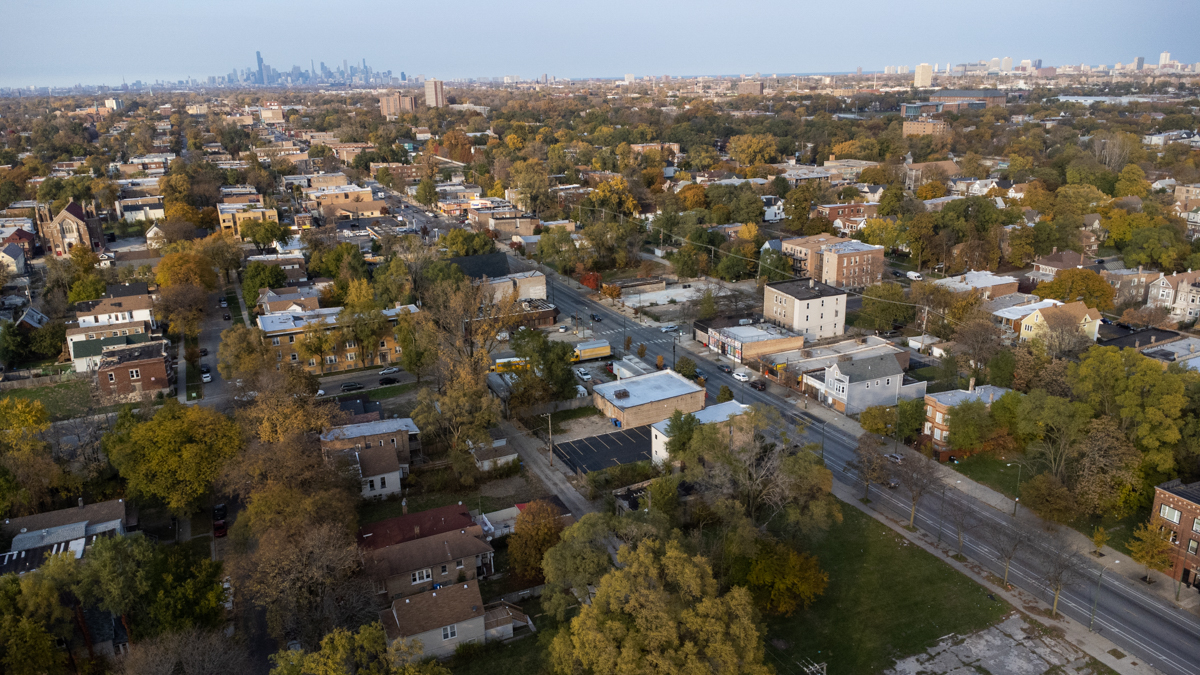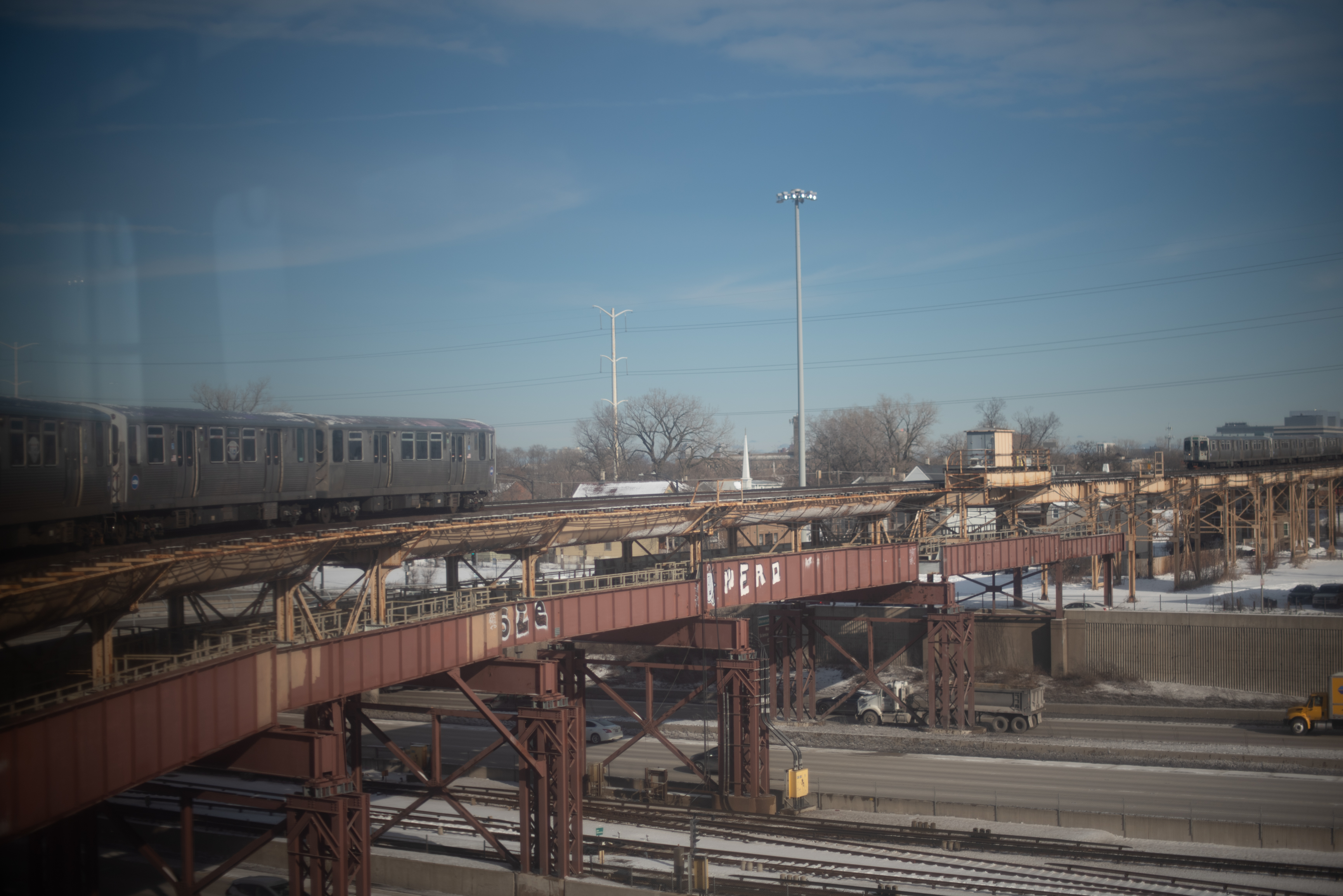In ‘The Billboard,’ Chicago Journalist Tackles Abortion Rights And Seeks To Portray Englewood ‘As More Than The Headlines’

[ad_1]
ENGLEWOOD — Natalie Moore knew Englewood was the perfect setting for her new play, which weaves together race, class, gender and Chicago politics.
In “The Billboard,” the WBEZ journalist’s debut as a playwright, Black women who run a medical clinic and reproductive rights center in Englewood must contend with an anti-abortion City Council candidate. A heated battle ensues as the two sides put up competing billboards in the neighborhood, with the clinic workers fighting for Black women to retain autonomy over their bodies.
“I knew that I wanted a place that was disinvested in during the City Council race,” said Moore, who covers race, class and communities. “I wanted a neighborhood that had more low-income households because this is a federally qualified health center. It’s a place that people can go to for free. Could that have been in Chatham or Roseland? Probably, but there’s something about Englewood. There is contested space.”
“The Billboard” was published as a book this month and will premiere in collaboration with the 16th Street Theater in June.
The core narrative of the play has proved to be timely.
Abortion has been legal in the United States since the 1973 Supreme Court case of Roe v. Wade. But some states have essentially outlawed abortion through controversial laws, significantly reducing access to health care for women. In 2021, the Supreme Court declined to thwart a ban in Texas that would prevent a person from receiving an abortion more than six weeks after pregnancy, before many people even know they’re pregnant.
When “The Billboard” hits the stage this summer, the Supreme Court will rule on a law in Mississippi that bans abortion after 15 weeks, potentially overturning Roe.
“I had no idea we would be in this position,” Moore said. “I thought this play was always going to be timely, but I didn’t think it was going to be urgent.”

‘This Is The Play You Should Write’
The vision for “The Billboard” was inspired by real events, Moore said.
The Afiya Center, a non-profit reproductive justice organization for Black women, put up a billboard in Dallas, Texas, declaring abortion was self-care in 2018. Moore covered an anti-abortion campaign in Chicago in 2011 that featured 30 billboards around the South Side reading, “Every 21 minutes, our next possible leader is aborted.” A picture of then-President Barack Obama was sketched next to the words.
While taking a class at Chicago Dramatists, Moore had to complete a homework assignment that encouraged the writers to write a four-page scene about an object. Both billboards came to mind. She had one day to write the scene, she said.
“In most plays, something is happening immediately, and then the play is centered around the fallout, the controversy, and the interactions with that,” Moore said. “I thought, ‘Oh, let me just make up a scene with [a billboard],’ and the feedback in the class was really good.”
Moore was previously commissioned by the 16th Street Theater to adapt her non-fiction book, “The South Side,” into a one-night scripted reading, she said. But when she sent an excerpt of what would soon become “The Billboard,” the plan changed, she said.
“I sent it to the artistic director just to say, ‘I get it, I kind of know what I’m doing here.’ And she said, ‘… I don’t want to tell you what to do, but this is the play you should write,’” Moore said.

Moore wrote character sketches to “create a fully fleshed-out person,” she said. She spoke with friends who write scripts and asked her teenagers questions to tap into the character of Kayla Brown, a 19-year-old program assistant at the fictional women’s health center, Moore said.
“I spent so much time trying to figure out which high schools they went to because they’re all from Chicago,” Moore said. “That is what we say to each other here when we meet someone. We are placing them. We are judging them. We think that a high school tells you a lot about a person. You have to know these characters well so that comes across, even if everything about them isn’t making the page or the stage.”
Moore’s City Council hopeful came in the form of Demetrius Drew, a Black man. Drew places a billboard in the community that says, “Abortion is genocide. The most dangerous place for a Black child is his mother’s womb. Keep Englewood Black. Vote Demetrius Drew for City Council.”
Stunned and disgusted, the women at the health center add a billboard of their own on 59th and Halsted. Under a photo of Black women smiling and laughing — looking like they’re “about to toast with Prosecco at a bottomless brunch,” Moore said — their sign reads, “Black women have the right to make decisions for their families and their bodies. Abortion is self-care. #TrustBlackWomen.”
The script writing process overlapped with what Moore does every day for radio, she said.
“You’re writing for the ear, and that’s the big similarity,” Moore said. “You’re taking the best of the language that someone’s saying and putting that in your script.”
In the end, Moore wrote a play that was not “a reenactment or historic retelling of the Dallas controversy,” but rather a story that pays homage to Black women and “transcends into other locales,” she said.
“Even though the play is about abortion, it’s more than that,” Moore said. “It’s taking on patriarchy. It’s looking at politics. It’s looking at urban development. And I think the best literary plays have layers on layers. I never set out to make this a debate play.”
 Credit: Colin Boyle/Block Club Chicago
Credit: Colin Boyle/Block Club ChicagoMoore said she did not write the play intending to inspire people, but she does want people to see themselves in her work. And once people see the play, she hopes they “walk away with questions, questioning themselves,” she said.
Most importantly, she wants to see more opportunities for people to tell their stories, she said.
“I wanted to portray Englewood as more than the headlines,” Moore said. “There’s so much art in the city, even in places like Englewood. I want all kinds of people to have opportunities to tell stories and different kinds of stories. There’s no singular story, and there should be other representations of art from various communities.”
“The Billboard,” directed by TaRon Patton, will run June 23-July 17 at Northwestern University’s Wirtz Center, 710 N. Lake Shore Drive. Tickets are available here. You can buy the book from Haymarket Books here.
Listen to “It’s All Good: A Block Club Chicago Podcast”:
[ad_2]
Source link
